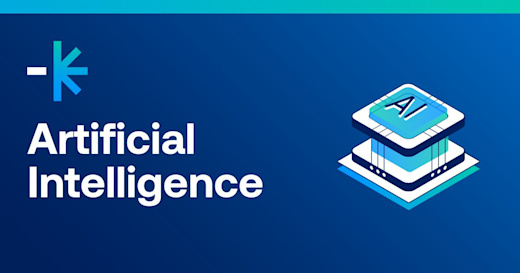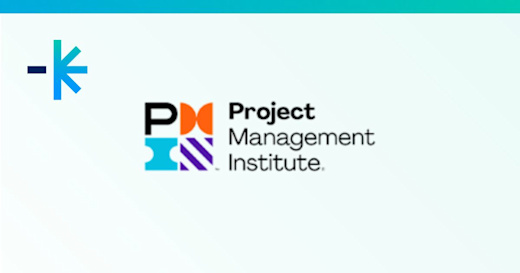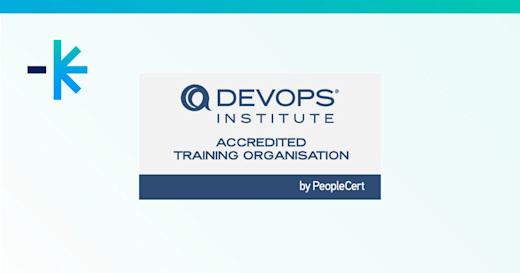Built for simplicity and user-friendliness, Microsoft offers a wide array of technology solutions that are used across countless industries. In fact, as of 2020, more than 90% of Fortune 500 companies used Microsoft Cloud in some form.
To get ahead in your career and stand out from the competition, consider earning Microsoft Certifications that’ll validate your skills and help you gain a professional advantage.
Ready to get started? Here’s everything you need to know about Microsoft Certifications, including why they’re important, the specific platforms you can become certified on, and what’s involved to earn your new qualifications.
Why You Should Become Certified
Simply put, earning certifications gives you more credibility in the IT sector, making you a much more appealing candidate to organisations. According to the 2018 Pearson VUE Value of IT Certification survey by Pearson VUE:
91% of tech professionals say certification makes them more credible
93% of company leaders agree that being certified makes candidates more valuable
52% of professionals say they’re more sought after by IT companies after becoming certified
35% say they earned more after becoming certified
41% experience a deeper overall level of job satisfaction
The enhanced skill set you develop by obtaining Microsoft Certifications can put you on the radar of more organisations, differentiate you from the competition, help you make more money, and empower you to get more out of your career. And given that such a high percentage of top companies use Microsoft Cloud, this is one of the most practical platforms on which to gain certifications.
Types of Microsoft Certifications
Lumify Work (formerly known as DDLS) can help you become certified on five different Microsoft platforms and offers training on several specific areas within each platform. And it’s not something that requires a major time or financial investment. Most courses can be completed in just 4-5 days at a relatively low cost.
Here’s a breakdown of the different types of Microsoft Certifications you can consider, along with recommended resources that can give you more information.
Microsoft 365
This is Microsoft’s most popular platform and is currently used by over one million companies globally – including more than 57,200 throughout Australia. The suite encompasses several productivity apps, including Microsoft Word, Excel, PowerPoint, OneDrive, and Teams.
Microsoft 365 certifications are primarily designed for entry-level and associate-level positions – and with Microsoft’s popularity soaring, there’s plenty of demand for IT professionals with knowledge in these areas.
Specific certifications you can pursue include:
Microsoft 365 Certified: Developer Associate
Microsoft 365 Certified: Enterprise Administrator Expert
Microsoft 365 Certified: Fundamentals
Microsoft 365 Certified: Messaging Administrator Associate
Microsoft 365 Certified: Modern Desktop Administrator Associate
Microsoft 365 Certified: Security Administrator Associate
Microsoft 365 Certified: Teams Administrator Associate
For more information on Microsoft 365 certifications, visit this page.
Microsoft Azure
There’s been significant growth in the number of organisations using Azure — Microsoft’s cloud computing platform. As an example, as of 2020, 1.4 million websites across the world used the platform, including over 19,500 in Australia. Certifications on this platform focus heavily on AI, data, development, and analytics and include:
Microsoft Certified: Azure Administrator Associate
Microsoft Certified: Azure AI Engineer Associate
Microsoft Certified: Azure AI Fundamentals
Microsoft Certified: Azure Data Engineer Associate
Microsoft Certified: Azure Data Fundamentals
Microsoft Certified: Azure Data Scientist Associate
Microsoft Certified: Azure Database Administrator Associate
Microsoft Certified: Azure Developer Associate
Microsoft Certified: Azure DevOps Engineer Expert
Microsoft Certified: Azure for SAP Workloads Specialty
Microsoft Certified: Azure Fundamentals
Microsoft Certified: Azure IoT Developer Specialty
Microsoft Certified: Azure Security Engineer Associate
Microsoft Certified: Azure Solutions Architect Expert
Microsoft Certified: Azure Stack Hub Operator Associate
Microsoft Certified: Data Analyst Associate
For more information on Microsoft Azure certifications, visit this page.
Microsoft Dynamics 365
One of their more recently launched platforms, Microsoft Dynamics 365 is built for enterprise resource planning (ERP) and customer relationship management (CRM). The primary focus here is AI, cloud deployment, cloud security, and analytics.
Here are the current Microsoft Dynamics 365 certifications you can get (note, however, that the Microsoft Certified: Dynamics 365 Fundamentals certification will retire on June 30, 2021):
Microsoft Certified: Dynamics 365 + Power Platform Solution Architect Expert
Microsoft Certified: Dynamics 365 Business Central Functional Consultant Associate
Microsoft Certified: Dynamics 365 Customer Service Functional Consultant Associate
Microsoft Certified: Dynamics 365 Field Service Functional Consultant Associate
Microsoft Certified: Dynamics 365 Finance and Operations App Developer Associate
Microsoft Certified: Dynamics 365 Finance and Operations Apps Solution Architect Expert
Microsoft Certified: Dynamics 365 Finance Functional Consultant Associate
Microsoft Certified: Dynamics 365 Fundamentals
Microsoft Certified: Dynamics 365 Fundamentals Customer Engagement Apps (CRM)
Microsoft Certified: Dynamics 365 Fundamentals Finance and Operations Apps (ERP)
Microsoft Certified: Dynamics 365 Marketing Functional Consultant Associate
Microsoft Certified: Dynamics 365 Sales Functional Consultant Associate
Microsoft Certified: Dynamics 365 Supply Chain Management Functional Consultant Associate
Microsoft Certified: Dynamics 365 Supply Chain Management, Manufacturing Functional Consultant Associate
For more information on Microsoft Dynamics 365 certifications, visit this page.
Microsoft Power Platform
Microsoft Power Platform consists of a robust set of solutions that rely heavily on effectively analysing data, automating processes, and building virtual agents. Organisations use it to make smarter business decisions and develop systems to create a better customer experience.
Here are the Microsoft Power Platform certifications you can get:
Microsoft Certified: Dynamics 365 + Power Platform Solution Architect Expert
Microsoft Certified: Power Platform App Maker Associate
Microsoft Certified: Power Platform Developer Associate
Microsoft Certified: Power Platform Functional Consultant Associate
Microsoft Certified: Power Platform Fundamentals
Microsoft Certified: Power Platform Solution Architect Expert
For more information on Microsoft Power Platform certifications, visit this page.
Microsoft Security, Compliance, and Identity
The global cybersecurity market has witnessed immense growth in recent years, going from US 137.6 billion in 2017 to US 184 billion in 2020. And by 2023, experts project that it will climb all the way to US 248 billion.
Microsoft Security, Compliance, and Identity certification is designed for those looking to grow their knowledge in cloud-based cybersecurity. It’s applicable to both new students who are just learning the ropes, as well as those with a pre-existing IT knowledge.
Here are the Microsoft Security, Compliance, and Identity certifications you can currently earn:
Microsoft 365 Certified: Security Administrator Associate
Microsoft Certified: Azure Security Engineer Associate
Microsoft Certified: Identity and Access Administrator Associate
Microsoft Certified: Information Protection Administrator Associate
Microsoft Certified: Security Operations Analyst Associate
Microsoft Certified: Security, Compliance, and Identity Fundamentals
For more information on Microsoft Security, Compliance, and Identity certifications, visit this page.
Microsoft Apps
Get the latest training in Microsoft 365 applications such as Excel, Word, PowerPoint, and Microsoft Teams. We can assist with large end-user application migration rollouts to reduce time-to-productivity or customise training for your specific needs.
Here are some Microsoft end-user apps courses you can study. Please note that completing end-user courses can earn students badges instead of certifications.
Microsoft Excel - Beginner
Microsoft Project - Beginner
Microsoft Certification Exams
To earn any of the credentials listed above, you’ll need to pass the requisite exam(s). Here’s how we suggest going about this.
First, identify the specific skills and knowledge needed for the particular Microsoft Certification you want to pursue. Say, for example, you wanted to become certified as a Microsoft 365 Certified: Microsoft 365 Developer Associate, which focuses on designing, building, testing, and maintaining applications using Microsoft 365.
A career in this area revolves around learning to optimise applications, while maximising productivity and improving collaboration. So, to successfully earn your Certification, you’ll need to understand concepts like user interface elements and integration points, and to gain experience with platforms like Microsoft Graph and Microsoft Identity.
Next, enrol in a course that covers these skills to train and prepare for your exam. To become certified as a Microsoft Developer Associate, for example, you’d take the course, Microsoft MS-600T00 – Building Applications and Solutions with Microsoft 365 Core Services. A quick look at the course overview will tell you exactly what to expect, the key topics that are covered, and the skills you’ll gain.
Once you’re done with the course, your final step is to take the relevant exam. If you successfully complete the exam with a passing score, you’ll receive your Certification. Make sure you update your resume and LinkedIn profile accordingly!
What If You Don’t Pass Your Initial Exam?
Now, say that you don’t receive a passing score the first time. What do you do then?
In the event that this happens, you can retake the exam after waiting at least 24 hours. If you fail to reach a satisfactory score the second time, you must wait at least 14 days before retrying it again a third time. Then, there’s a 14-day waiting period for your fourth and fifth attempts.
Generally speaking, you have a maximum of five chances to pass each exam within a given year. If you fail to pass within that time frame, you’re eligible to retake the exam 12 months after the date of your initial exam. For full information on exams and retakes, check out Microsoft Certifications exam policies and FAQs.
Accelerating Your IT Career with Microsoft Certifications
Research has found a clear correlation between earning certification in Microsoft platforms and career growth in the IT field. Stop wondering whether a Certification will benefit your career and start focusing on choosing the right path that matches your long-term career goals.
To get started, learn more about the wide range of Microsoft Certifications that Lumify Work offers here.
We are thrilled to announce that Lumify Work has been honoured with the Microsoft MCT Superstars Award for FY24. This is a testament to the high quality of our Microsoft Certified Trainers (MCTs) across Australia and New Zealand.
Built for simplicity and user-friendliness, Microsoft offers a wide array of technology solutions that are used across countless industries. In fact, as of 2020, more than 90% of Fortune 500 companies used Microsoft Cloud in some form.
To get ahead in your career and stand out from the competition, consider earning Microsoft Certifications that’ll validate your skills and help you gain a professional advantage.








